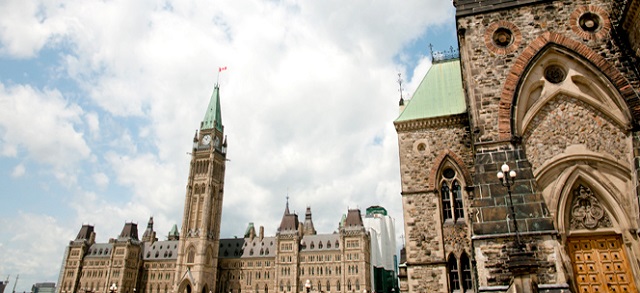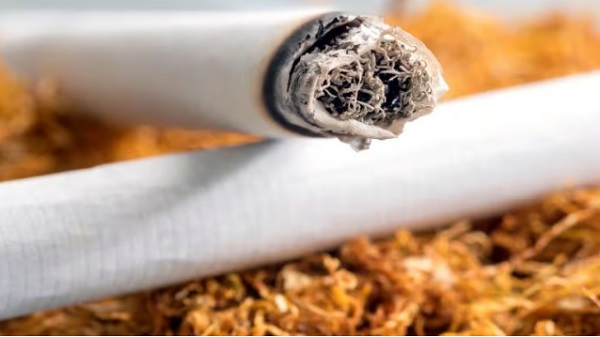Business
Biden Admin Reportedly Throws Support Behind UN Push To Decrease Global Plastic Production

 From the Daily Caller News Foundation
From the Daily Caller News Foundation
By Nick Pope
“If the Biden-Harris Administration wants to meet its sustainable development and climate change goals, the world will need to rely on plastic more, not less. Plastics enable solar and wind energy, are critical to modern healthcare, deliver clean drinking water, reduce home, building and transportation energy needs, and help prevent food wastage.”
The Biden administration is reportedly now in favor of a United Nations-led effort to reduce global plastic production, according to multiple reports.
U.S. officials now reportedly support a developing U.N. treaty that would aim to impose a cap on plastic production worldwide, a shift from its earlier position of allowing countries to determine production levels for themselves, sources familiar with the matter told Reuters and Politico. Biden administration officials have also reportedly signaled that they will support measures to target particular types of plastics and establish a list of specific chemicals to address with new, uniform obligations.
Senior White House Council on Environmental Quality (CEQ) official Jonathan Black reportedly informed industry stakeholders and environmental activists of the shift in position during two private meetings that were closed to the media, according to Politico. Reuters first reported on the administration’s pivot on the UN plastic treaty on Wednesday, and CEQ spokesperson Justin Weiss confirmed the outlet’s reporting in subsequent correspondence with Politico.
It is currently unclear exactly how such a treaty would actually be enforced if adopted.
Prior to the administration’s position shift, U.S. officials had endorsed a more “flexible” approach rather than a global cap on plastic production and had not offered much indication as to whether or not the Biden administration supported an effort to crack down on specific chemicals, according to Politico. Negotiations on the U.N. treaty are still ongoing and are expected to conclude at a November conference in Busan, South Korea; that meeting will take place after Nov. 5’s U.S. presidential election, according to Reuters.
The Biden administration’s reported change of position on the matter now aligns the U.S. with countries like South Korea, the European Union’s member states, Canada and Peru, according to Reuters. Nations that are major petrochemical producers, like China and Saudi Arabia, have attempted to block further discussions about a possible cap on global plastic production and instead want countries to focus on less divisive initiatives, such as improving waste management.
“As the White House caves to the wishes of extreme NGO groups, it does a disservice towards our mutual ambition for a cleaner, lower carbon future where used plastic doesn’t become pollution in the first place,” Chris Jahn, president and CEO of the American Chemistry Council, said of the pivot in a Wednesday statement. “If the Biden-Harris Administration wants to meet its sustainable development and climate change goals, the world will need to rely on plastic more, not less. Plastics enable solar and wind energy, are critical to modern healthcare, deliver clean drinking water, reduce home, building and transportation energy needs, and help prevent food wastage.”
Meanwhile, Greenpeace — a major environmental group — is pleased to see the Biden administration harden its stance on a global plastic production cap.
“This shift in U.S. policy is crucial for creating the unified approach needed to tackle the plastics crisis,” Greenpeace USA Oceans Campaign Director John Hocevar said in a Wednesday statement. “By supporting global criteria for phasing out harmful chemicals and avoidable plastic products, the U.S. is helping to ensure that the treaty will have the teeth needed to protect families and ecosystems alike. It is a welcome signal that they are finally listening to the demands of the American people, almost two-thirds of whom support a Global Plastics Treaty that would ban single-use plastic packaging.”
Neither the White House nor the CEQ responded immediately to requests for comment.
Business
Capital Flight Signals No Confidence In Carney’s Agenda

From the Frontier Centre for Public Policy
By Jay Goldberg
Between bad trade calls and looming deficits, Canada is driving money out just when it needs it most
Canadians voted for relative continuity in April, but investors voted with their wallets, moving $124 billion out of the country.
According to the National Bank, Canadian investors purchased approximately $124 billion in American securities between February and July of this year. At the same time, foreign investment in Canada dropped sharply, leaving the country with a serious hole in its capital base.
As Warren Lovely of National Bank put it, “with non-resident investors aloof and Canadians adding foreign assets, the country has suffered a major capital drain”—one he called “unprecedented.”
Why is this happening?
One reason is trade. Canada adopted one of the most aggressive responses to U.S. President Donald Trump’s tariff agenda. Former prime minister Justin Trudeau imposed retaliatory tariffs on the United States and escalated tensions further by targeting goods covered under the Canada–United States–Mexico Agreement (CUSMA), something even the Trump administration avoided.
The result was punishing. Washington slapped a 35 per cent tariff on non-CUSMA Canadian goods, far higher than the 25 per cent rate applied to Mexico. That made Canadian exports less competitive and unattractive to U.S. consumers. The effects rippled through industries like autos, agriculture and steel, sectors that rely heavily on access to U.S. markets. Canadian producers suddenly found themselves priced out, and investors took note.
Recognizing the damage, Prime Minister Mark Carney rolled back all retaliatory tariffs on CUSMA-covered goods this summer in hopes of cooling tensions. Yet the 35 per cent tariff on non-CUSMA Canadian exports remains, among the highest the U.S. applies to any trading partner.
Investors saw the writing on the wall. They understood Trudeau’s strategy had soured relations with Trump and that, given Canada’s reliance on U.S. trade, the United States would inevitably come out on top. Parking capital in U.S. securities looked far safer than betting on Canada’s economy under a government playing a weak hand.
The trade story alone explains much of the exodus, but fiscal policy is another concern. Interim Parliamentary Budget Officer Jason Jacques recently called Ottawa’s approach “stupefying” and warned that Canada risks a 1990s-style fiscal crisis if spending isn’t brought under control. During the 1990s, ballooning deficits forced deep program cuts and painful tax hikes. Interest rates soared, Canada’s debt was downgraded and Ottawa nearly lost control of its finances. Investors are seeing warning signs that history could repeat itself.
After months of delay, Canadians finally saw a federal budget on Nov. 4. Jacques had already projected a deficit of $68.5 billion when he warned the outlook was “unsustainable.” National Bank now suggests the shortfall could exceed $100 billion. And that doesn’t include Carney’s campaign promises, such as higher defence spending, which could add tens of billions more.
Deficits of that scale matter. They can drive up borrowing costs, leave less room for social spending and undermine confidence in the country’s long-term fiscal stability. For investors managing pensions, RRSPs or business portfolios, Canada’s balance sheet now looks shaky compared to a U.S. economy offering both scale and relative stability.
Add in high taxes, heavy regulation and interprovincial trade barriers, and the picture grows bleaker. Despite decades of promises, barriers between provinces still make it difficult for Canadian businesses to trade freely within their own country. From differing trucking regulations to restrictions on alcohol distribution, these long-standing inefficiencies eat away at productivity. When combined with federal tax and regulatory burdens, the environment for growth becomes even more hostile.
The Carney government needs to take this unprecedented capital drain seriously. Investors are not acting on a whim. They are responding to structural problems—ill-advised trade actions, runaway federal spending and persistent barriers to growth—that Ottawa has yet to fix.
In the short term, that means striking a deal with Washington to lower tariffs and restore confidence that Canada can maintain stable access to U.S. markets. It also means resisting the urge to spend Canada into deeper deficits when warning lights are already flashing red. Over the long term, Ottawa must finally tackle high taxes, cut red tape and eliminate the bureaucratic obstacles that stand in the way of economic growth.
Capital has choices. Right now, it is voting with its feet, and with its dollars, and heading south. If Canada wants that capital to come home, the government will have to earn it back.
Jay Goldberg is a fellow with the Frontier Centre for Public Policy.
Business
Budget 2025 continues to balloon spending and debt

The Canadian Taxpayers Federation is criticizing Prime Minister Mark Carney for ballooning spending and debt in Budget 2025.
“Budget 2025 shows the debt continues to spiral out of control because spending continues to spiral out of control,” said Franco Terrazzano, CTF Federal Director. “Carney needs to reverse course to get debt and spending under control because every dollar Canadians pay in federal sales tax is already going to pay interest charges on the debt.
“Carney isn’t close to balancing anything when he’s borrowing tens of billions of dollars every year.”
The federal deficit will increase significantly this year to $78.3 billion. There is no plan to balance the budget and stop borrowing money. The federal debt will reach $1.35 trillion by the end of this year.
Debt interest charges will cost taxpayers $55.6 billion this year, which is more than the federal government will send to the provinces in health transfers ($54.7 billion) or collect through the GST ($54.4 billion).
Budget 2025 increases spending by $38 billion this year to $581 billion. Despite promises to control spending in future years, Budget 2025 projects that overall spending will continue to rise by billions every year.
“Canadians don’t need another plan to create a plan to meet about cutting spending, Canadians need real spending cuts now,” Terrazzano said. “The government always tells Canadians that it will go on a diet Monday, but Monday never comes.
“And the government isn’t really finding savings if it’s planning to keep increasing spending every year.”
Budget 2025 commits to “strengthening” the industrial carbon tax and “setting a multi-decade industrial carbon price trajectory that targets net zero by 2050.”
“Carney’s hidden carbon tax will make it harder for Canadian businesses to compete and will push Canadian entrepreneurs to set up shop south of the border,” Terrazzano said. “Carney should scrap all carbon taxes, cut spending and stop taking so much money from taxpayers.”
-

 Agriculture20 hours ago
Agriculture20 hours agoDanish Cows Collapsing Under Mandatory Methane-Reducing Additive
-

 Bruce Dowbiggin2 days ago
Bruce Dowbiggin2 days agoA Story So Good Not Even The Elbows Up Crew Could Ruin It
-

 Alberta2 days ago
Alberta2 days agoCanada’s heavy oil finds new fans as global demand rises
-

 Daily Caller1 day ago
Daily Caller1 day agoTrump Reportedly Planning Ground Troops, Drone Strikes On Cartels In Mexico
-

 Addictions2 days ago
Addictions2 days agoThe War on Commonsense Nicotine Regulation
-

 Health2 days ago
Health2 days agoRFK Jr’s argument for studying efficacy of various vaccines
-

 Business1 day ago
Business1 day agoTrump’s Tariffs Have Not Caused Economy To Collapse
-

 Business2 days ago
Business2 days agoCarney government should retire misleading ‘G7’ talking point on economic growth





